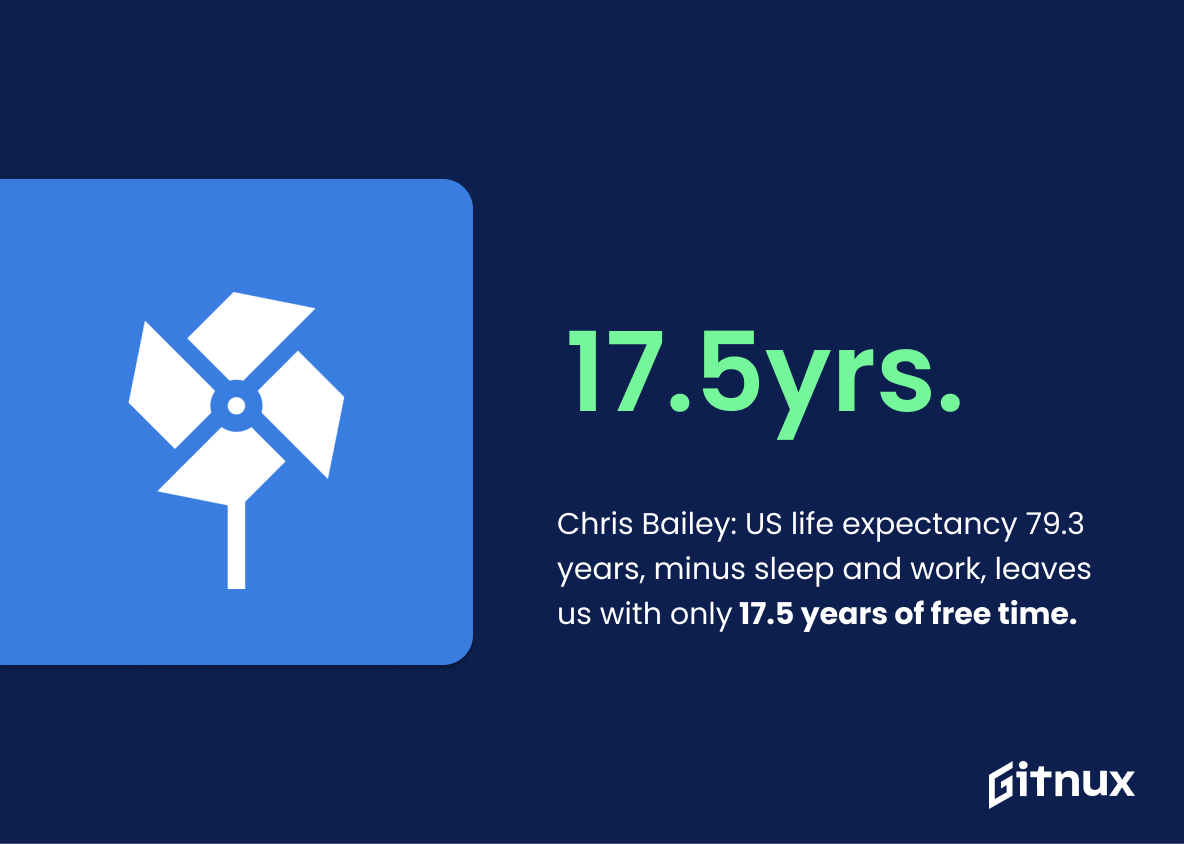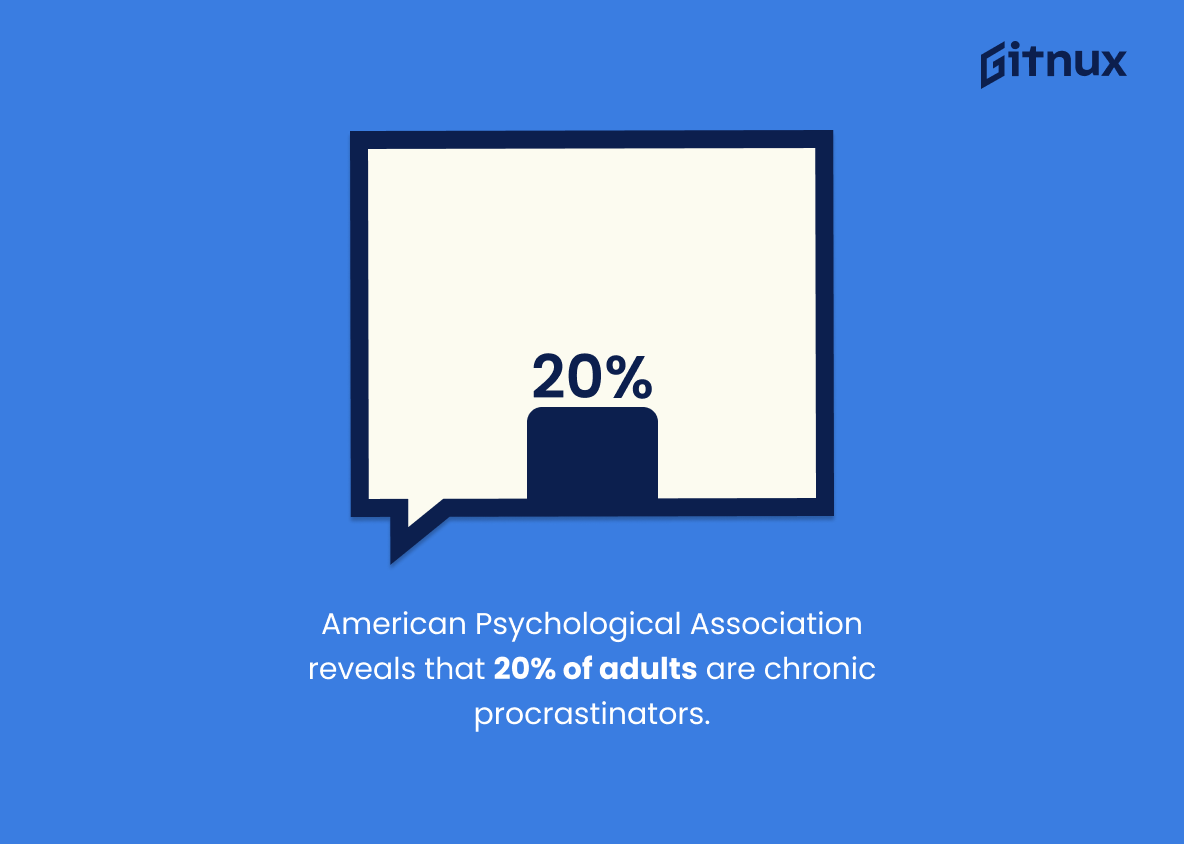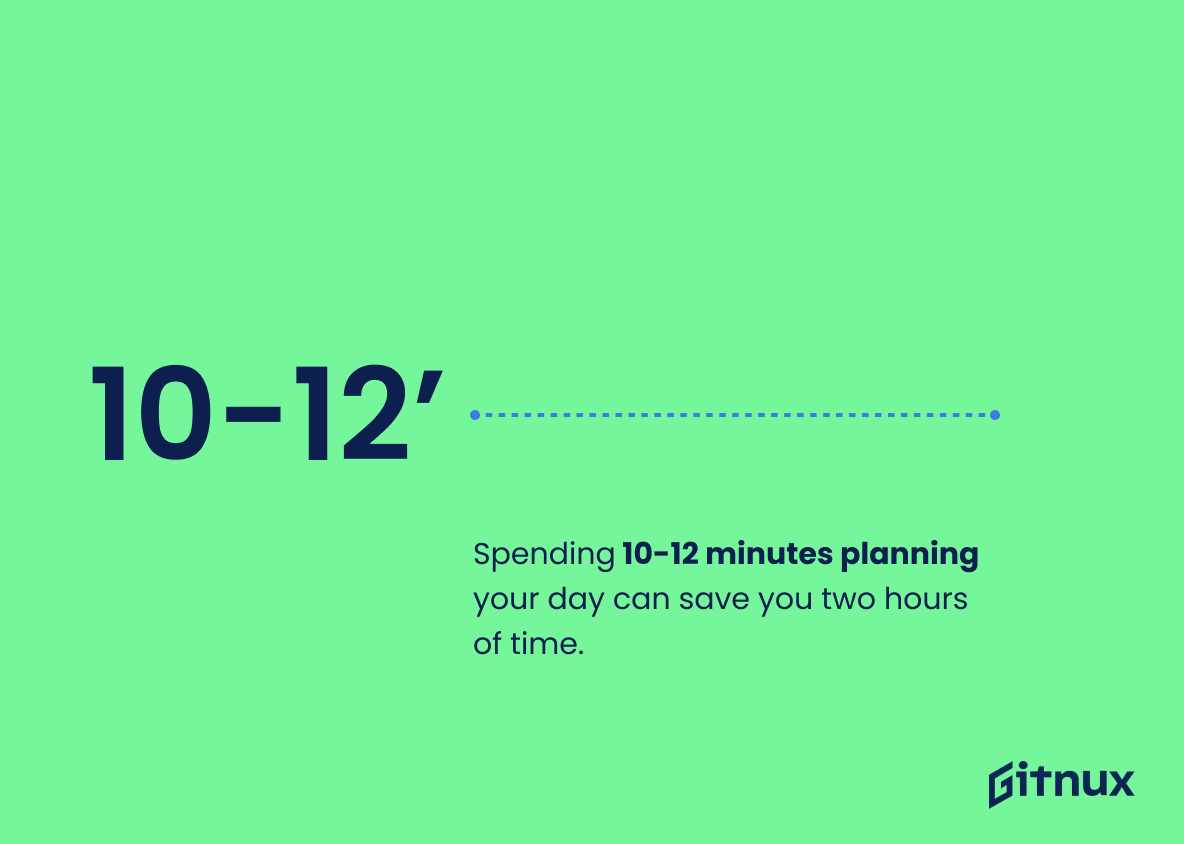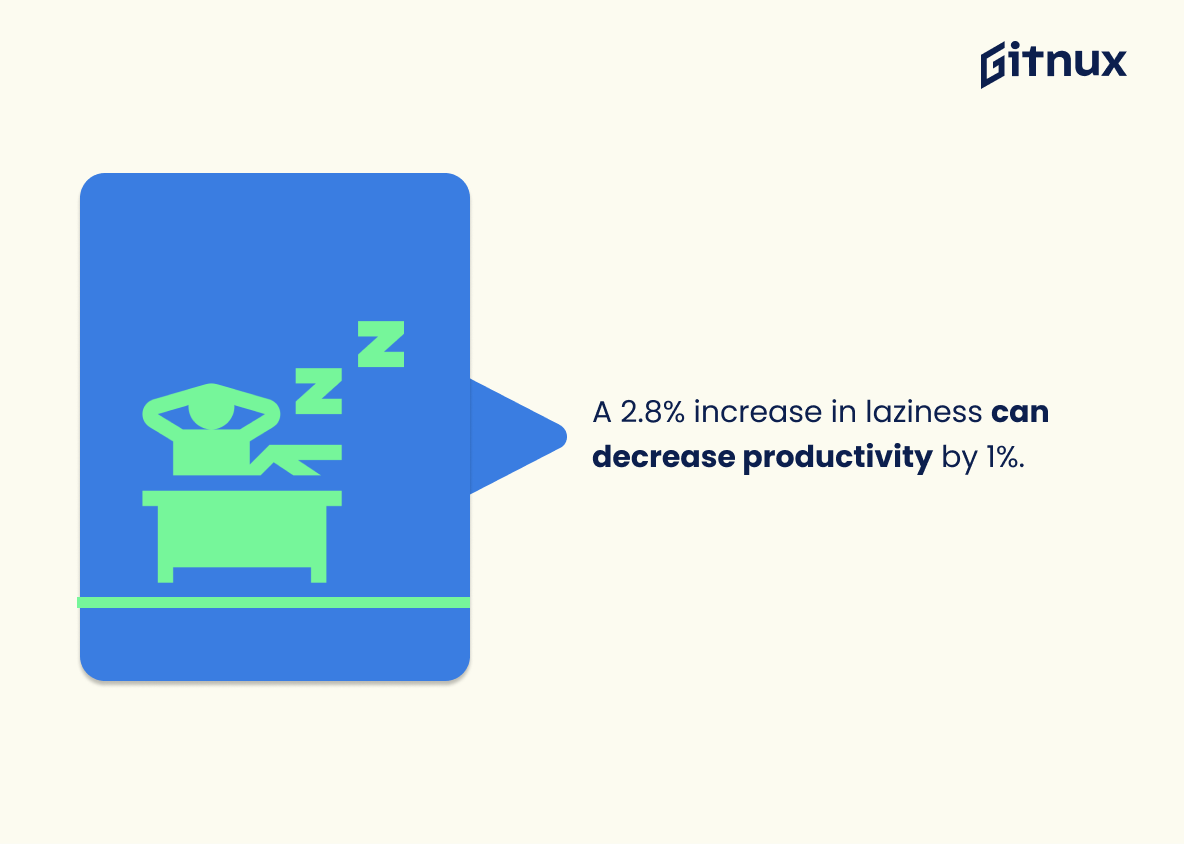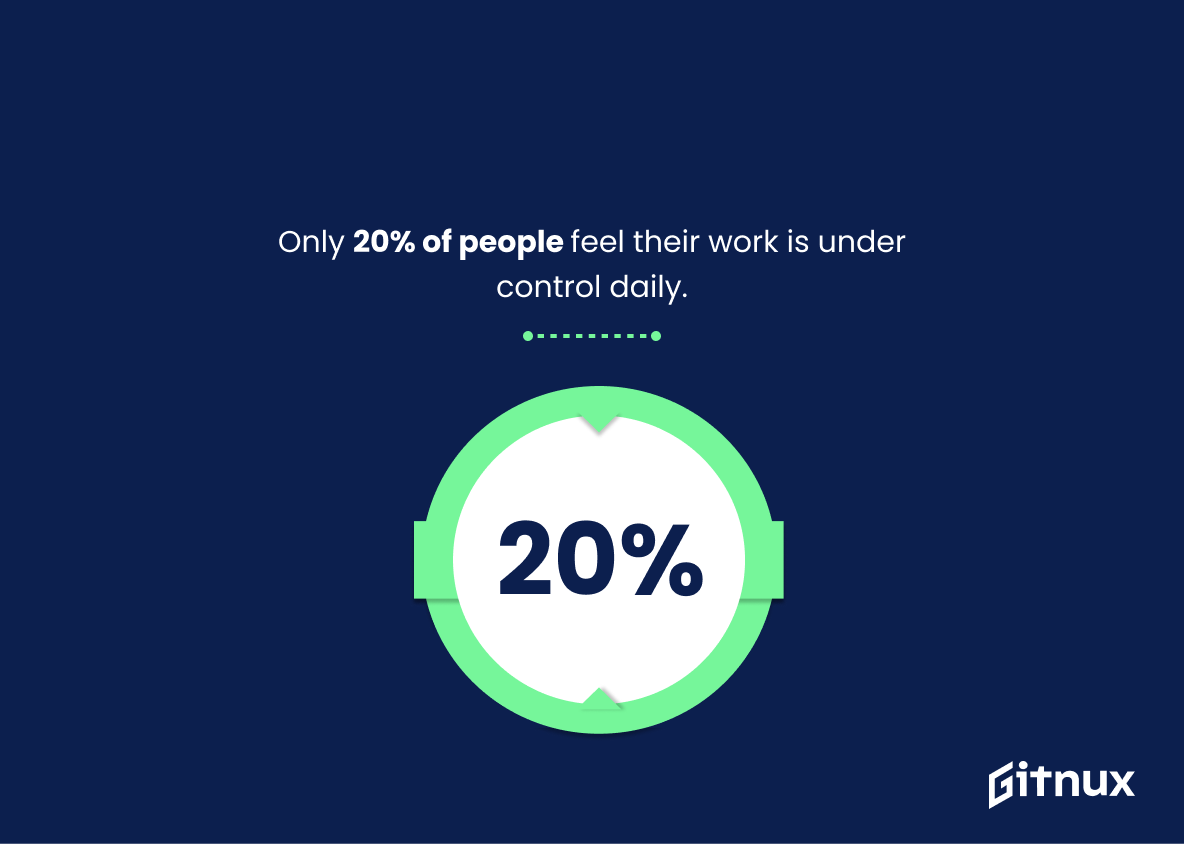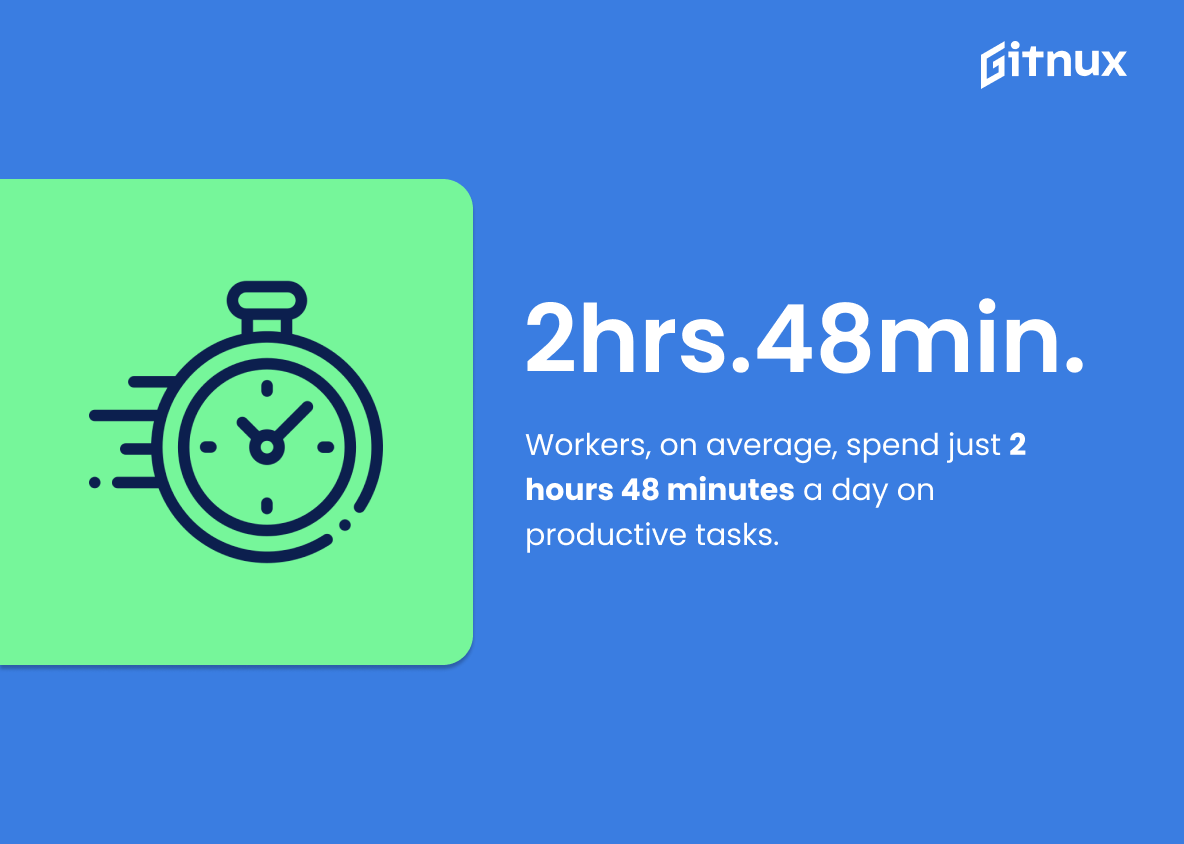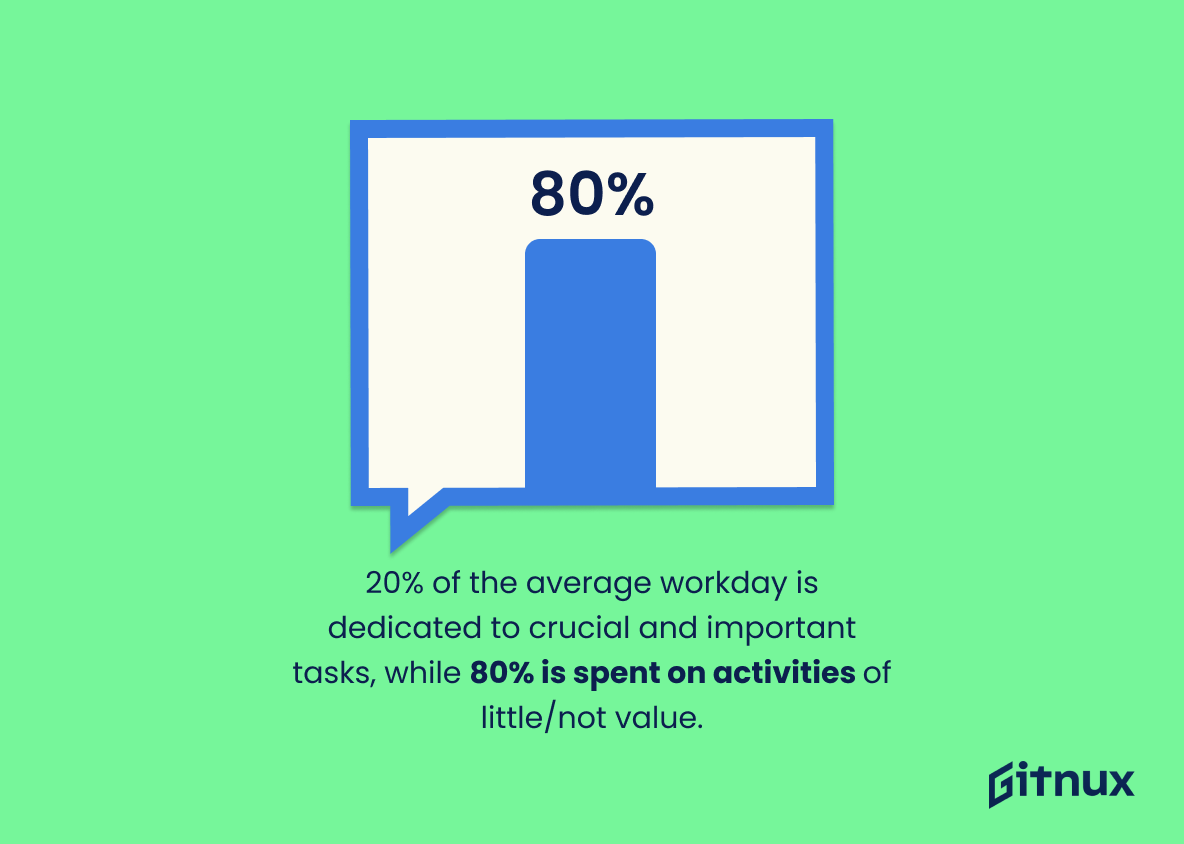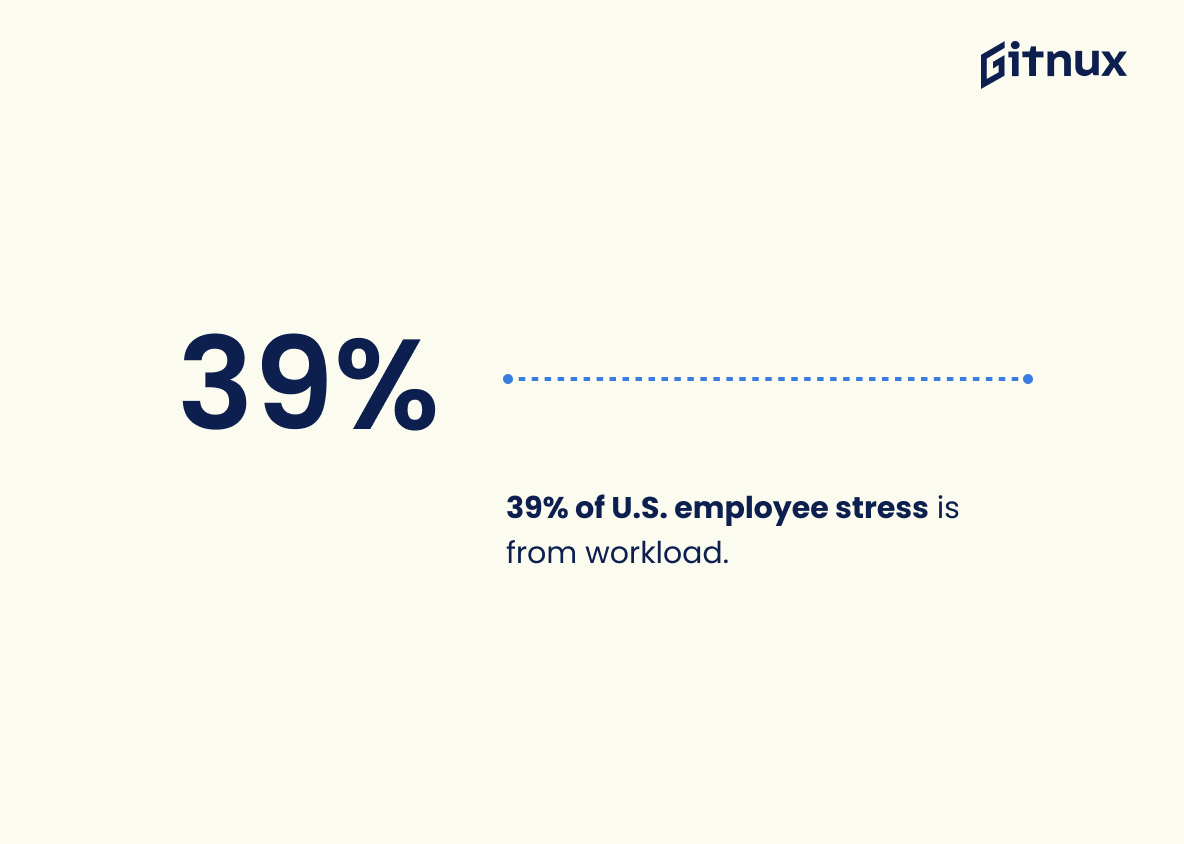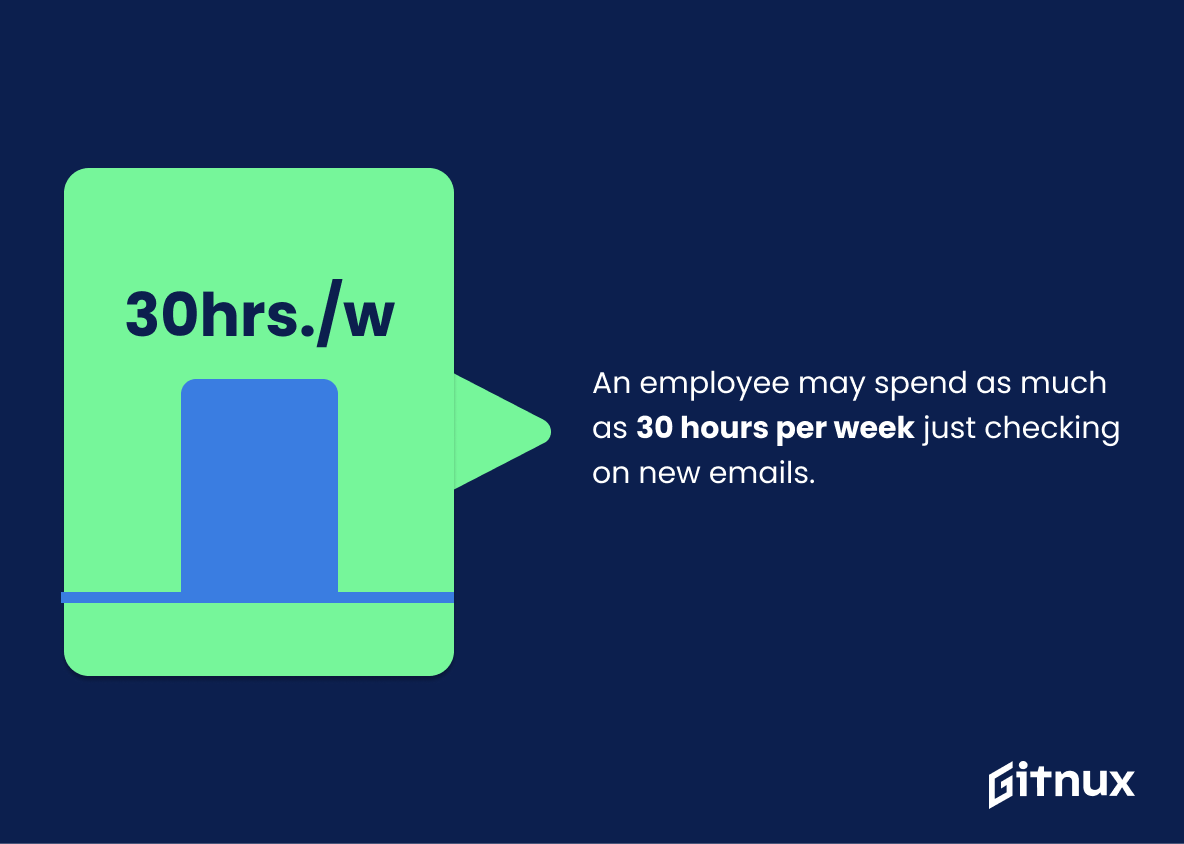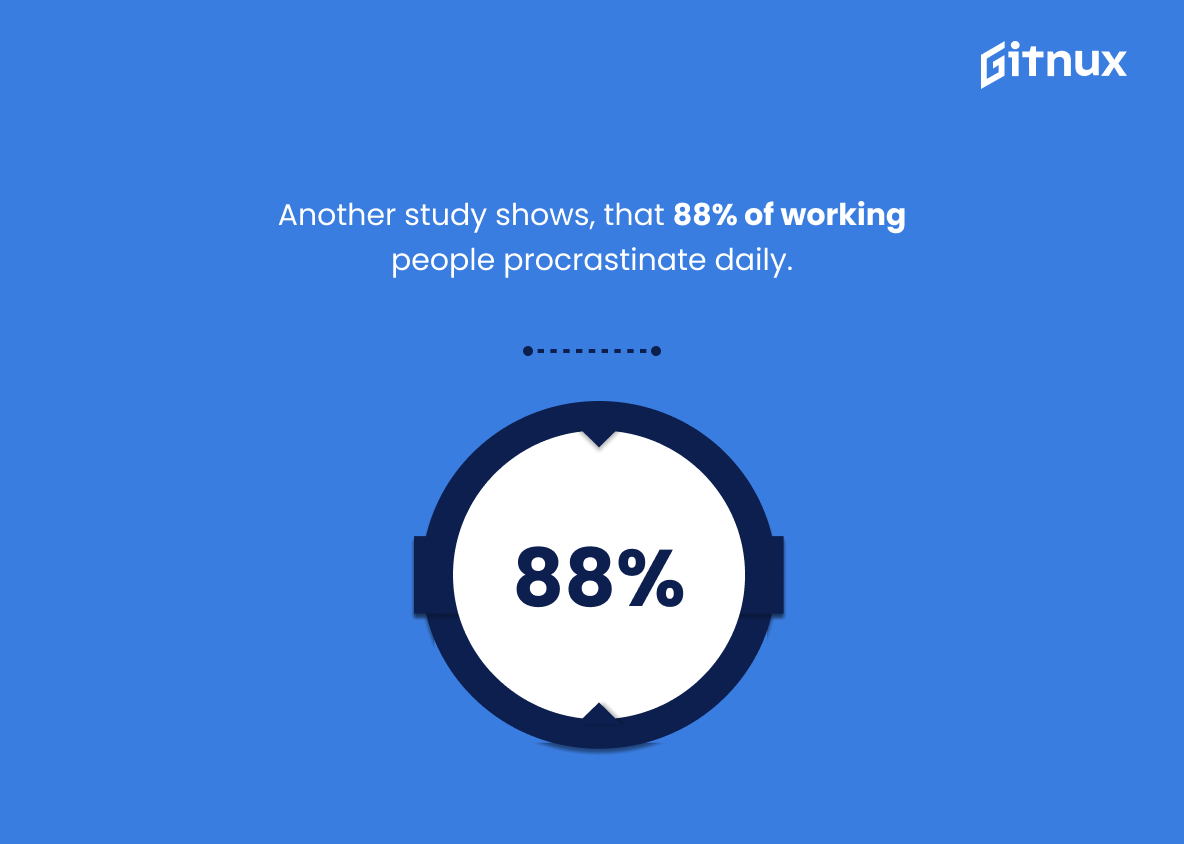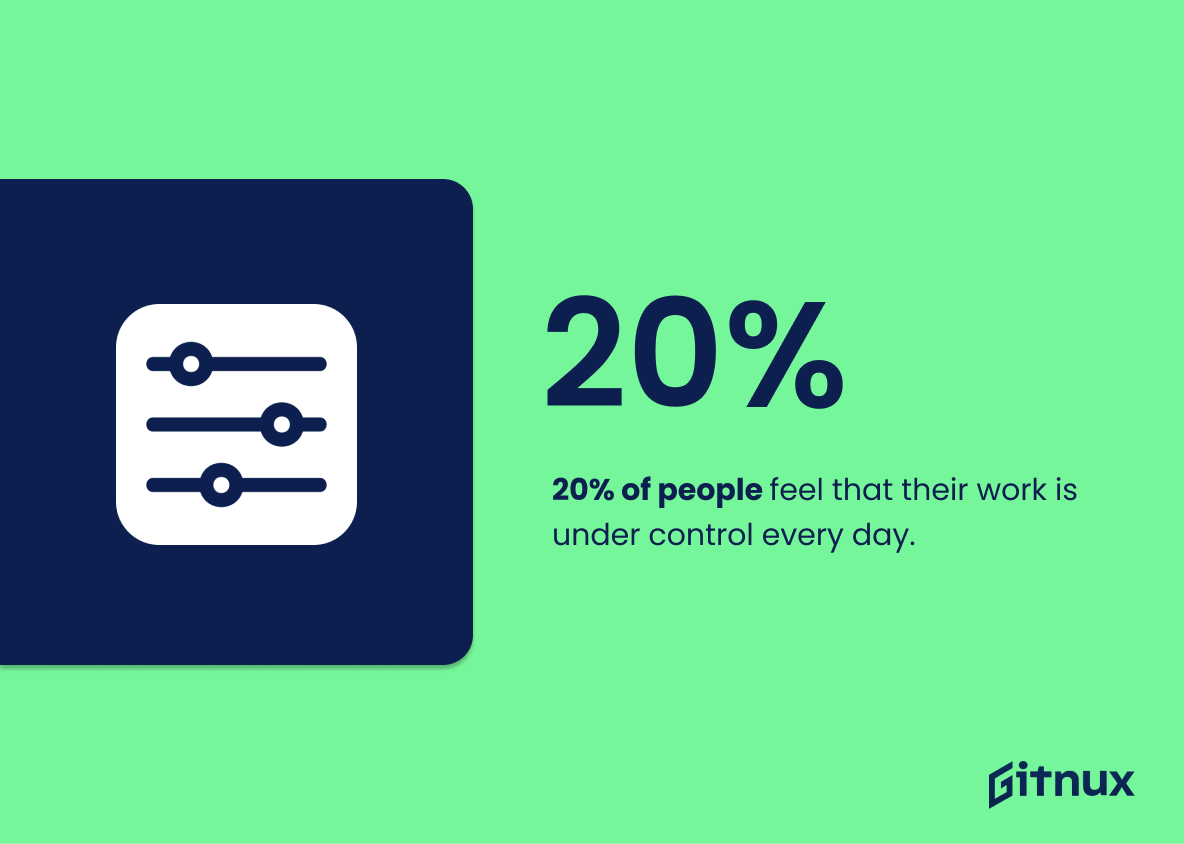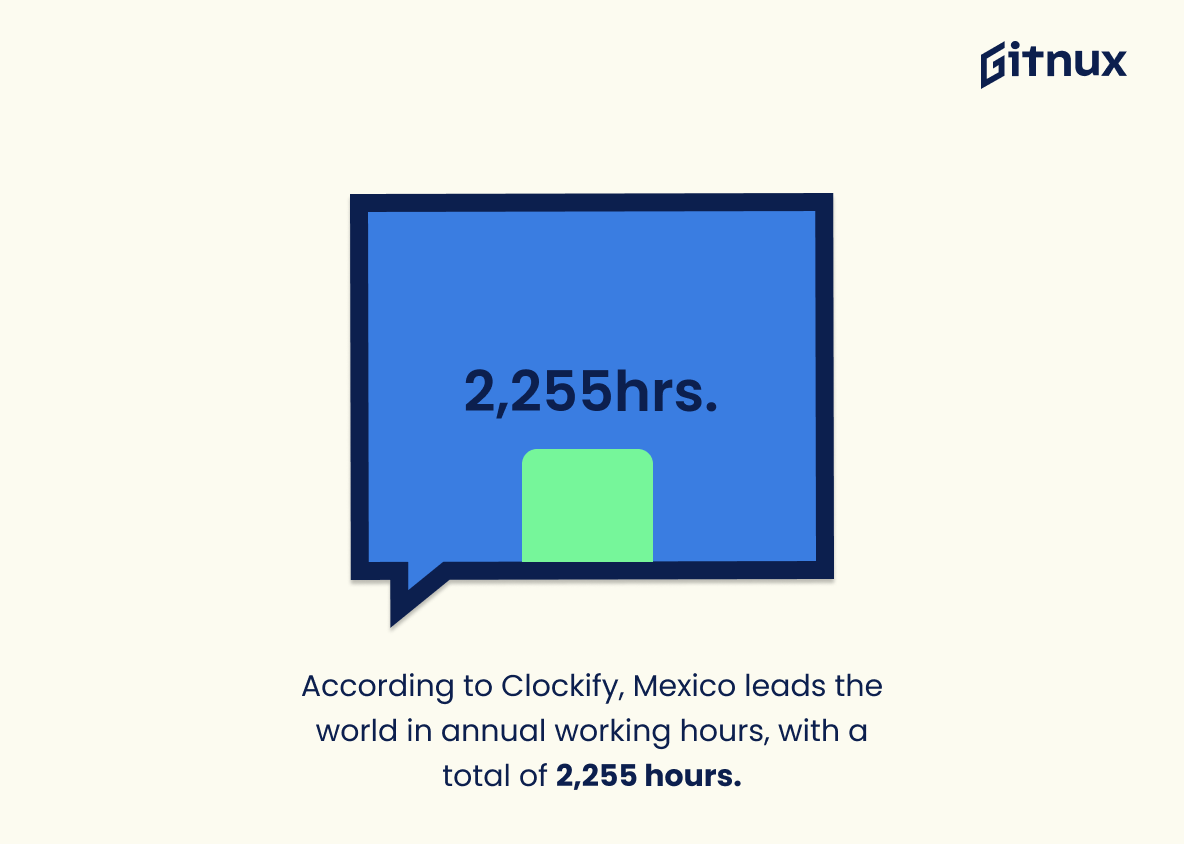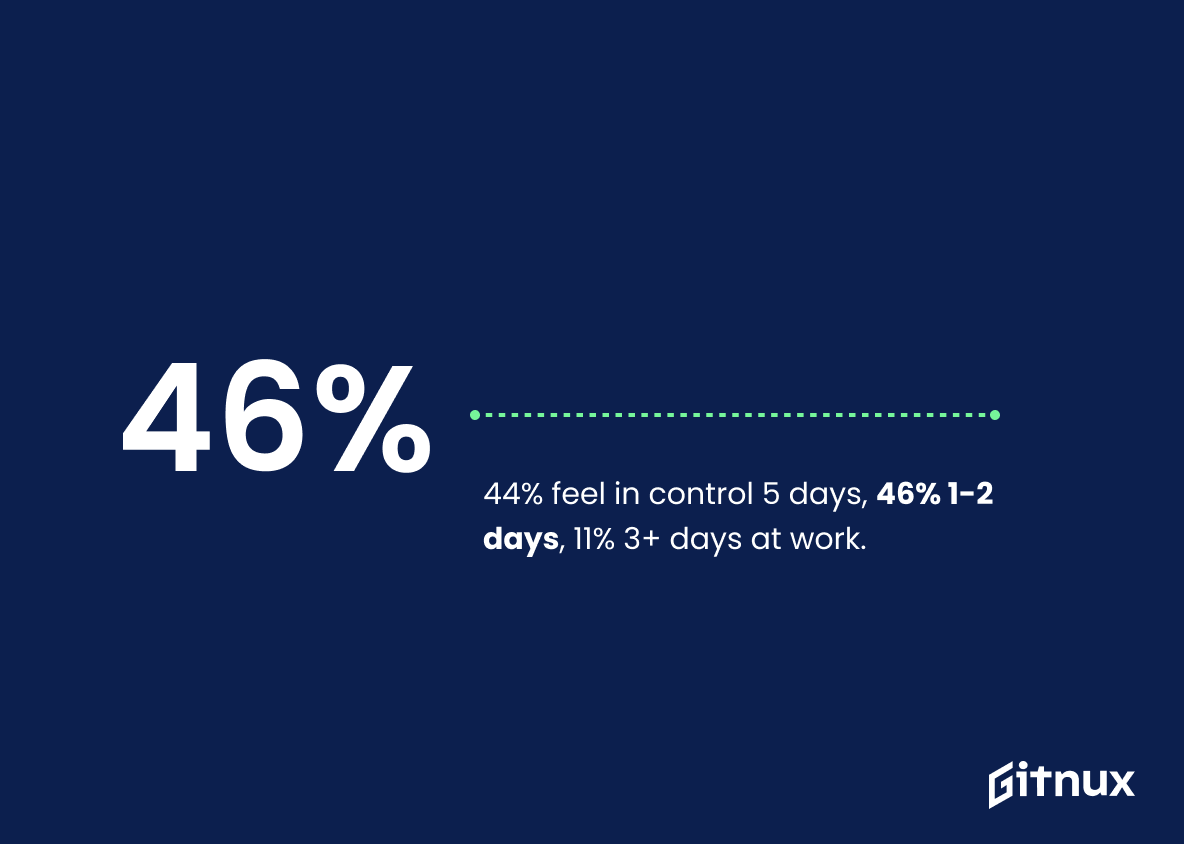Time management is an essential skill for anyone who wants to maximize their productivity and reach their goals. Knowing how to manage your time effectively can make a huge difference in the quality and quantity of your work.
Statistics can help you to get an idea of how well you’re doing when it comes to time management. In this article, we are going to explore the latest time management statistics and show you some alarming numbers, so you can have a clear picture of the main obstacles in the way to better work productivity.
General time management statistics
Chris Bailey states that the average life expectancy in the US is 79.3 years, but if you subtract from it the tasks we are obligated to do, such as sleep and work, we can be left with as few as 17.5 years of free time.
American Psychological Association reveals that 20% of adults are chronic procrastinators.
Spending 10-12 minutes planning your day can save you two hours of time.
Only 20% of people feel their work is under control daily.
Workers, on average, spend just 2 hours 48 minutes a day on productive tasks (or 14 hours and 8 minutes a week). The rest of the day is spent on neutral activities (1 hour and 6 minutes) and distracting activities (1 hour and 12 minutes).
20% of the average workday is spent on “crucial” and “important” things, while 80% of the workday is spent on things that have “little value” or “no value”.
39% of U.S. employee stress is from workload.
An employee may spend as much as 30 hours per week just checking on new emails.
Another study shows, that 88% of working people procrastinate daily. Furthermore, 31.9% said they procrastinate between 2 and 3 hours per day, 17% admit they waste up to 4 hours daily due to repeatedly putting off tasks.
20% of people feel that their work is under control every day. 66% (2/3rds) of people feel that their work is under control most of the time (at least 3 days per week). 21% feel that their work is either never under control or only under control 1 day per week. More than 10% of people (1 in 8) feel that their work is never under control.
According to Clockify, Mexico is the world’s leader in the hours its people spend working per year. While for Mexico this number is 2,255 hours, South Korea is just behind it with 2,070 hours annually. US workers are also among the ones working most, as they spend working an average of 1,789 hours per year, which is about 35 hours a week.
44% of people feel they have things under control at work 5 days a week, but 46% feel they don’t have things under control for one to two days a week, 11% feel they don’t have control for three or more days.
Time management issues and how we spend our workday
The average employee spends 2 hours per day recovering from distractions.
The average knowledge worker checks email and messengers every 6 minutes.
On average, 21% of the workday is spent on entertainment, news, and social media.
The average worker spends 51% of every workday on low to no-value tasks.
On average, we spend 3 hours and 15 minutes a day (49.4 days per year) on our phones.
Most people check their phones an average of 58 times per day. Half of all phone checks happen within 3 minutes of a previous one.
The average office worker in the US gets interrupted as often as 11 times per hour, or almost every 6 minutes. These distractions cost businesses in the US around $588 billion every year, according to Zippia research.
The average employee spends 2 hours and 11 minutes procrastinating each day. That adds up very quickly. Over 10 hours are lost every week if an employee has a five-day schedule. With a 40-hour workweek, one-fourth of the time that an employee is on the clock will be lost to procrastination.
The average employee spends 51% of every workday on low to no-value tasks.
The most common low to no-value tasks that people waste their time on is unnecessary commuting (13%), unnecessary meetings (16%), and unnecessary emails (23%).
Leaders spend 72% of their total workweek in meetings, on average. The average leader has 37 meetings every week.
Read more about meeting statistics here
Workplace distractions cost each employee an average of 3 hours per day. That means that every month, 60 hours are wasted on workplace distractions. That’s more than 37% of every employee’s time wasted per month.
On average, people “waste” 1 and 1/2 hours (91 minutes) each day on tasks and meetings that aren’t necessary to their role.
The US women use about 2.5 hours a day on household activities, while men – 1.9 hours.
Americans check their phones 96 times per day. In order words, people in the United States check their phones every ten minutes.
Leisure activities – sports, socializing, reading, TV, etc. – take around 5.2 hours a day from the lives of US adults. Worldwide, Internet users spend approximately 144 minutes a day on social media.
Employed women living with a child under age 6 worked an average of 4.5 hours per day (about 31.5 hours per week). They performed 34 minutes per day less work for pay than employed women living in households with older children.
Time management techniques and their effectiveness
The average person tries 13 time management methods.
Less than 1 in 5 people (18%) have a proper time management system. 82% of people do not have a Time Management system, they just use a list or their email inbox.
The same research discovered the most and least successful time management techniques, so let’s look at them.
The Eisenhower matrix is the most successful time management technique. 100% of people using this technique feel their work is under control either 4 or 5 days per week.
The Pomodoro Technique is the second most successful time management strategy. 60% of people using this technique feel that their work is under control either 4 or 5 days a week.
33% of people use a To-Do List to manage their time and tasks.
24% of people use their Email Inbox as their time and Task Management system.
12% of people schedule all of their tasks in their diary in advance.
25% of people “Just deal with whatever seems most important at the time”.
Dealing with whatever comes up is the least successful time management technique, as most of the people using it feel their work is never or very rarely under control.
12% of workers schedule all their tasks in advance, while the vast majority of people are just doing tasks as they come as opposed to having a plan.
33% of people use a to-do list to manage their tasks and time.
25% just do whatever seems most important.
24% of people use their email inbox as their main source of time management.
12% of Zippia respondents prefer diary scheduling.
According to Timewatch, time blocking is the most common time management system used (5%), followed by the Rapid Planning Method (3%) and the Eisenhower Matrix at 2%.
70% of business and professional people use a “to-do” list on a regular basis to administer their tasks.
Timewatch in its time management statistics report highlights the main benefits of time management. 91% of survey respondents agreed that better time management would reduce stress at work. 90% agreed it would increase productivity, 86% think it would improve focus on tasks, 83% say it will lead to better decision-making.
84% believe it will help in reaching goals faster, 82% agreed it would give more confidence at work. 75% believe that it would result in better workplace relationships, 73% say better time management will lead to more free time.
Supplementary Statistics
46% of Americans say their work doesn’t end when they leave the office, with time management playing a large role.
A large portion of the population is struggling to balance their work and personal lives, and time management is a key factor in achieving this balance. This statistic is especially relevant to a blog post about Time Management Statistics, as it highlights the need for individuals to prioritize their time in order to achieve a healthy work-life balance.
Only 20% of the average workday is spent on “crucial” and “important” tasks.
This serves as a stark reminder that the majority of our workdays are spent on tasks that are not necessarily crucial or important. It highlights the need for better time management strategies to ensure that more of our time is devoted to the tasks that truly matter.
Employees spend an average of 8 hours per week on tasks that could be automated.
Thus, there is a need for businesses to invest in automation technology to free up their employees’ time and allow them to focus on more important tasks. This could lead to increased productivity and efficiency, as well as improved morale and job satisfaction.
23% of employees believe ineffective communication and poor project management to be the primary cause for wasted time.
This suggests that a significant portion of employees feel that these two factors are the primary culprits for wasted time, and thus, should be given priority when it comes to time management. This statistic is a powerful reminder that proper communication and project management are essential for successful time management.
Reprioritizing tasks throughout the day can waste as much as 40% of a person’s productive time.
It highlights the potential for wasted time when tasks are not prioritized correctly, and serves as a warning to those who are looking to maximize their productivity. By understanding the consequences of poor time management, individuals can take steps to ensure that their time is used efficiently and effectively.
89% of respondents admitted they waste time at work every day.
Therefore, there is a need for better time management strategies to be implemented in order to ensure that employees are making the most of their time and not letting it go to waste. This statistic is an important one to consider when discussing time management and how to make the most of the time available.
21% of all self-employed entrepreneurs indicate that procrastination is a major time challenge.
This highlights the prevalence of procrastination among this group, and serves as a reminder that even those who are their own bosses can struggle to stay on top of their workloads. As such, this statistic is an important one to consider when discussing time management strategies for entrepreneurs.
The average worker gets interrupted every 11 minutes, impacting their time management.
On average, workers are losing valuable time due to frequent interruptions. This can have a significant impact on productivity and efficiency, making it essential for workers to find ways to manage their time more effectively.
70% of employees work beyond scheduled hours and on weekends to complete tasks, largely due to poor time management.
The majority of employees are having to put in extra hours to complete tasks, likely due to a lack of proper planning and organization. This is a powerful reminder of the need for individuals and organizations to prioritize time management in order to maximize efficiency and productivity.
53.4% of people admit to not tracking how they spend their time at work.
This suggests that a large portion of the population is not taking the time to track their activities and prioritize their tasks, which can lead to a lack of productivity and efficiency. This statistic is an important reminder that time management is an essential skill that should not be overlooked.
44% of professionals say they spend the most time each week in meetings, resulting in less time for focused work.
A significant portion of the working week is taken up by meetings, leaving less time for focused work. This highlights the need for professionals to be mindful of how they manage their time to maximize productivity.
82% of professionals say that a flexible schedule is an essential factor for managing time throughout the day.
The majority of professionals recognize the value of having a schedule that can be adjusted to accommodate changing needs and priorities. This is an important point to consider when discussing time management strategies, as having a flexible schedule can help individuals stay on top of their tasks and make the most of their day.
Over two-thirds of professionals (70%) say that managing their time effectively is a problem.
It highlights the need for better strategies and tools to help professionals stay on top of their workloads and make the most of their time. It also serves as a call to action for employers to provide their employees with the resources and support they need to effectively manage their time.
33% of workers say that people and disruptions are why they can’t get tasks done during the workday.
This is an important insight for anyone looking to strengthen their time management skills, as it highlights the need to be aware of and prepared for potential distractions.
On average, people check their email 15 times a day.
On this, we can see the importance of managing our time wisely and setting aside specific times to check emails, rather than letting it take over our day.
Conclusion
You can see now, that time management is a critical skill to have in our modern world, as the global picture is not that bright. The vast majority of workers around the world don’t really have any time management system in hand and deal with upcoming tasks without having any plan on how to do it best.
You can manage your time more effectively if you have better knowledge and information on this topic. It is also important to understand that time management is an ongoing process that requires your effort and attention regularly. Being more productive and efficient are both possible with the correct techniques.
References:
Chris Bailey: “Our life span is really only 17.5 years”, cited in January 2023 (Source)
APA: “The nature of procrastination: A meta-analytic and theoretical review of quintessential self-regulatory failure” , cited in January 2023 (Source)
Acuity Training: “Time Management Statistics & Facts (New 2022 Research)” , cited in January 2023 (Source)
Zippia: “23 Opportune Time Management Statistics [2023]: Facts, Data, And Trends” , cited in January 2023 (Source)
RescueTime: “The State of Work Life Balance in 2019: What we learned from studying 185 million hours of working time”, cited in January 2023 (Source)
Dovico: “Time Management Facts and Figures”, cited in January 2023 (Source)
US Bureau of Labor Statistics: “U.S. Bureau Of Labor Statistics”, cited in January 2023 (Source)
Inc.: “New Study: The Average Worker Spends 30 Hours a Week Checking Email”, cited in January 2023 (Source)
Web Tribunal: “13+ Alarming Time Management Statistics”, cited in January 2023 (Source)
Statista: “Daily time spent on social networking by internet users worldwide from 2012 to 2022”, cited in January 2023 (Source)
Clockify: “Time Tracking Statistics”, cited in January 2023 (Source)
Timewatch: “Time Management Statistics (New Research in 2022)”, cited in January 2023 (Source)
BSL: “American Time Use Survey — 2021 Results”, cited in January 2023 (Source)
Visually: “Time Management Facts & Figure”, cited in January 2023 (Source)
ZipDo, cited June 2023: Time Management Statistics
